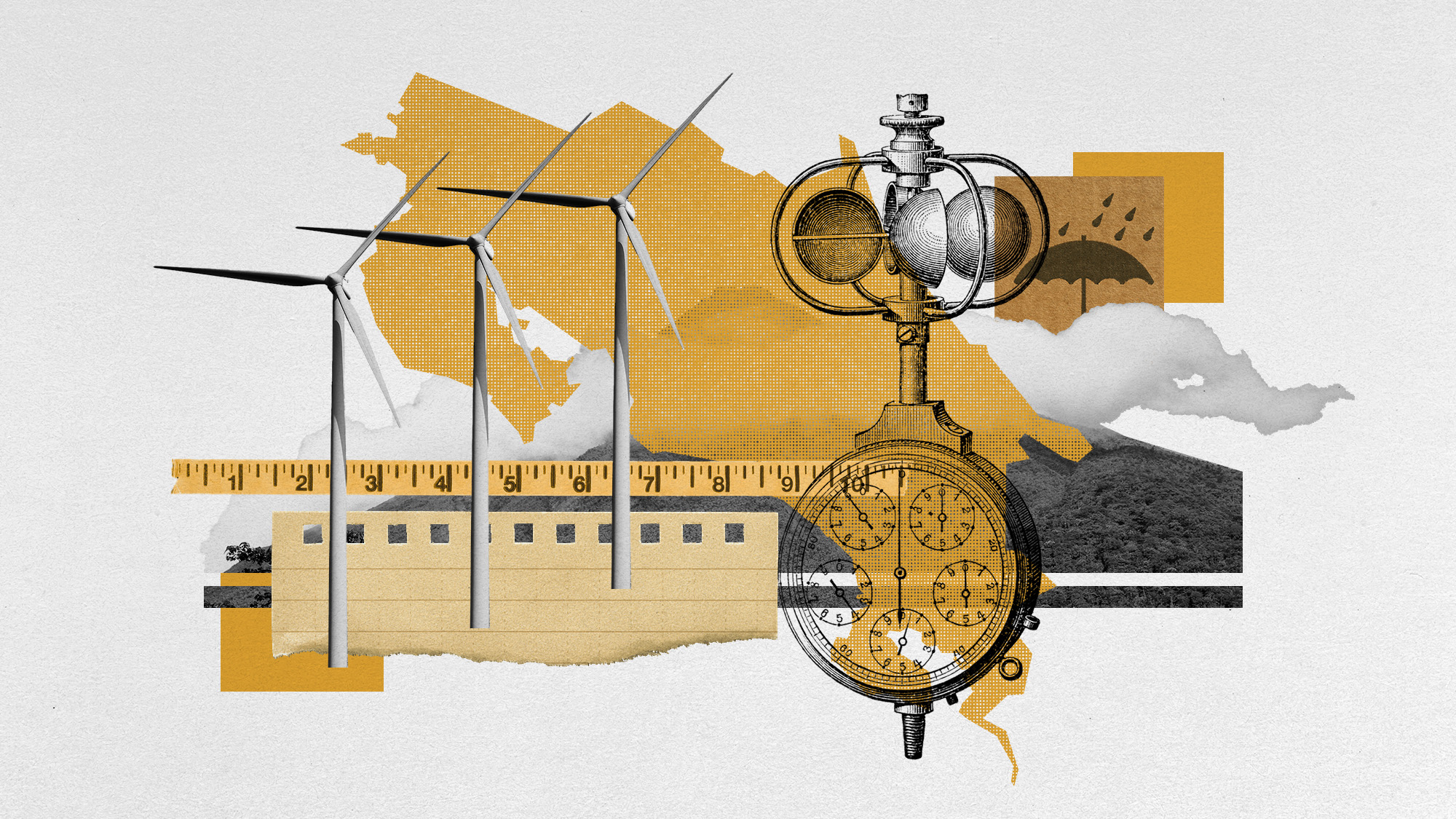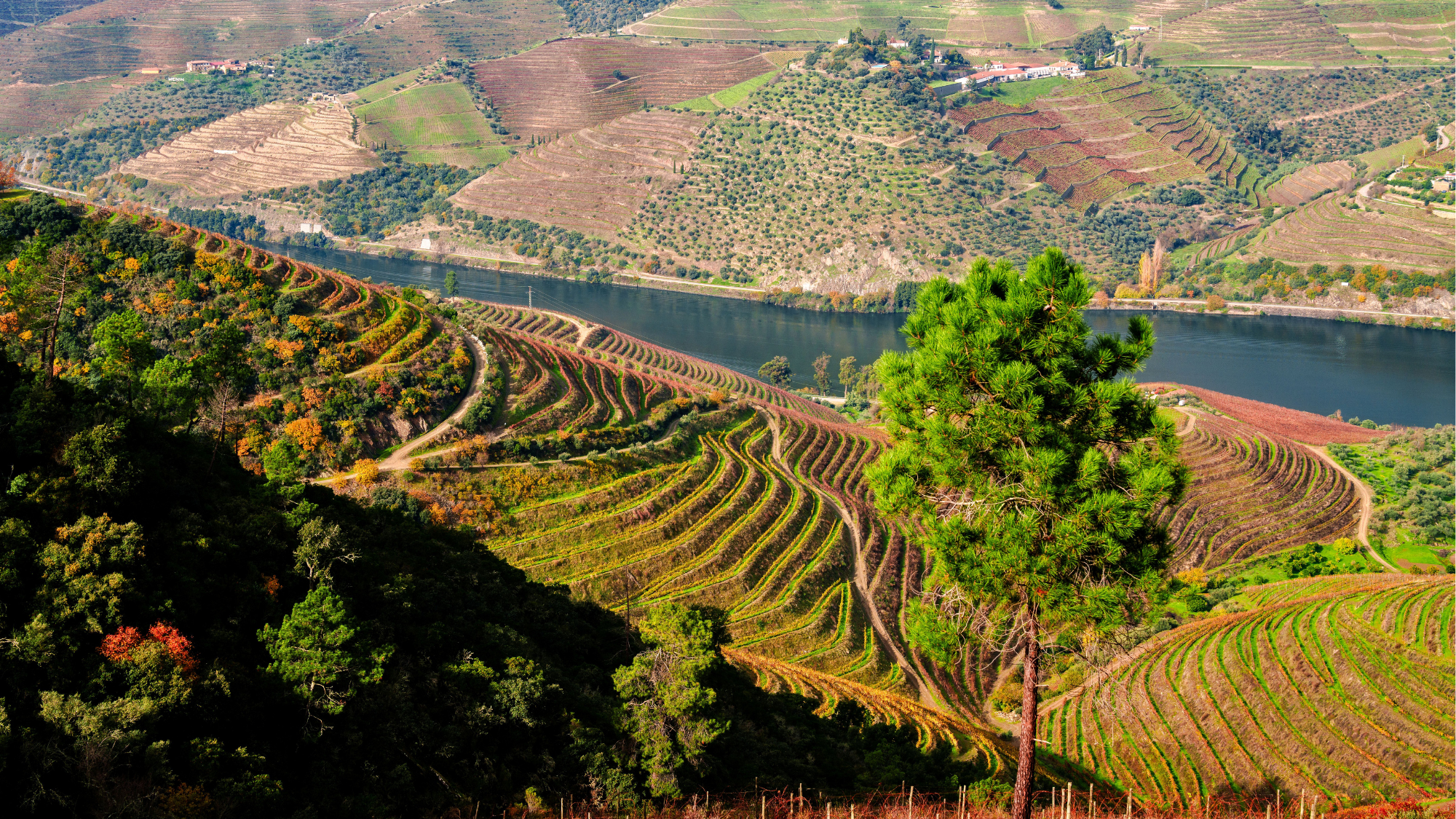Costa Rica's renewable energy success could be under threat
Central American nation generates nearly all its electricity from renewable sources but climate change is bringing huge challenges

A free daily email with the biggest news stories of the day – and the best features from TheWeek.com
You are now subscribed
Your newsletter sign-up was successful
For nearly a decade, Costa Rica has generated 99% of its electricity from renewable sources of energy.
In 2015, the Central American nation "made global headlines" when it generated 100% of its electricity from renewable energy for 75 days in a row, said The Verge. "For comparison, the US generates just over 20% of its electricity from renewable sources."
But even Costa Rica's consistent 99% is not "a perfect system", said the technology site. Climate change poses risks to country's power grid and there is "a lot of work left to do to get more solar and wind farms online".
The Week
Escape your echo chamber. Get the facts behind the news, plus analysis from multiple perspectives.

Sign up for The Week's Free Newsletters
From our morning news briefing to a weekly Good News Newsletter, get the best of The Week delivered directly to your inbox.
From our morning news briefing to a weekly Good News Newsletter, get the best of The Week delivered directly to your inbox.
How did Costa Rica achieve this?
Most of Costa Rica's electricity – about 73% – is generated by hydropower, thanks to the country's heavy rainfall, tropical location and natural topography. It also boasts a high concentration of rivers, dams and volcanoes, as well as a small population of only 5.1 million and no major industry. The Reventazón River hydropower dam, inaugurated in 2016, is the largest public infrastructure project in Central America after the Panama Canal.
But the other factor is man-made. A 1949 law, which established the state-run electricity utility Instituto Costarricense de Electricidad (ICE), said that Costa Rica should develop its natural resources for its electricity supply – and at the time, hydropower was the only source available.
"The secret of this achievement is mainly planning," said Kenneth Lobo Méndez, a director of planning and sustainability in electricity management. In the winter, the country has low wind, but its hydropower plants get "surplus flows". In the summer, there is lower hydropower, so other sources of energy "complement the electricity supply" – mainly wind power.
Having one state energy company, as opposed to multiple smaller private electric utilities, also helps simplify the planning process. ICE "can make a plan for the country", only sell what it needs to, without "interference" from different stakeholders, Lobo Méndez told The Verge.
A free daily email with the biggest news stories of the day – and the best features from TheWeek.com
But there is a "less-than-green truth about Costa Rica's energy use", said The Guardian in 2017, when reports of the country's 271 days of "fossil-fuel free electricity" made their way around the world. The country's demand for oil is increasing, as its population (and the number of cars and its transportation sector) grows. In 2022, 50% of the total energy supply was made up of oil, according to the International Energy Agency. Its heavy reliance on dams also carries an environmental cost, affecting wildlife.
How might climate change threaten its renewable energy sector?
When the weather pattern known as El Niño brought higher temperatures and lower rainfall last year, it gave Costa Rica an inkling of the future impact of climate change. Hydropower reservoirs suffered a 16% reduction in inflow, according to Lobo Méndez, while demand for electricity rose as people used more air-conditioning.
"In the rainy season, our reservoirs normally recover," he said. However, they were "extremely low" in 2023, so the hot season this year will likely be "a little bit complicated".
In the south of the country, rainfall is forecast to increase due to climate change. But "we can't get that rainfall into our system", said Marco Jiménez Chavez, an engineer for ICE. Hydroelectric plants in that region are "not ready to harness that amount of waterfall", he told The Verge.
To prepare, the country must "diversify" the system, so it won't only be reliant on water. Although hydropower will continue to generate "a great percentage" of the country's energy, new sources will be needed: solar power, wind and geothermal – the only renewable source that does not depend on climate variability.
Another option is to rely more on electricity from the regional market of Central American countries, said Lobo Méndez – but those countries are grappling with the same effects of climate change.
"They've also got low hydropower; there's not a lot of resources in the region to share."
Harriet Marsden is a senior staff writer and podcast panellist for The Week, covering world news and writing the weekly Global Digest newsletter. Before joining the site in 2023, she was a freelance journalist for seven years, working for The Guardian, The Times and The Independent among others, and regularly appearing on radio shows. In 2021, she was awarded the “journalist-at-large” fellowship by the Local Trust charity, and spent a year travelling independently to some of England’s most deprived areas to write about community activism. She has a master’s in international journalism from City University, and has also worked in Bolivia, Colombia and Spain.
-
 Hotel Sacher Wien: Vienna’s grandest hotel is fit for royalty
Hotel Sacher Wien: Vienna’s grandest hotel is fit for royaltyThe Week Recommends The five-star birthplace of the famous Sachertorte chocolate cake is celebrating its 150th anniversary
-
 Where to begin with Portuguese wines
Where to begin with Portuguese winesThe Week Recommends Indulge in some delicious blends to celebrate the end of Dry January
-
 Climate change has reduced US salaries
Climate change has reduced US salariesUnder the radar Elevated temperatures are capable of affecting the entire economy
-
 As temperatures rise, US incomes fall
As temperatures rise, US incomes fallUnder the radar Elevated temperatures are capable of affecting the entire economy
-
 The world is entering an ‘era of water bankruptcy’
The world is entering an ‘era of water bankruptcy’The explainer Water might soon be more valuable than gold
-
 Climate change could lead to a reptile ‘sexpocalypse’
Climate change could lead to a reptile ‘sexpocalypse’Under the radar The gender gap has hit the animal kingdom
-
 Why scientists want to create self-fertilizing crops
Why scientists want to create self-fertilizing cropsUnder the radar Nutrients without the negatives
-
 The former largest iceberg is turning blue. It’s a bad sign.
The former largest iceberg is turning blue. It’s a bad sign.Under the radar It is quickly melting away
-
 Why the Middle East is obsessed with falcons
Why the Middle East is obsessed with falconsUnder the Radar Popularity of the birds of prey has been ‘soaring’ despite doubts over the legality of sourcing and concerns for animal welfare
-
 How drones detected a deadly threat to Arctic whales
How drones detected a deadly threat to Arctic whalesUnder the radar Monitoring the sea in the air
-
 ‘Jumping genes’: how polar bears are rewiring their DNA to survive the warming Arctic
‘Jumping genes’: how polar bears are rewiring their DNA to survive the warming ArcticUnder the radar The species is adapting to warmer temperatures